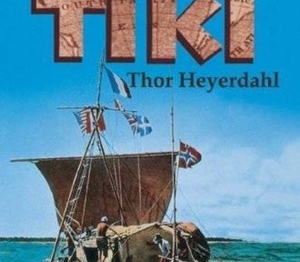1950康-蒂基Kon-Tiki
介绍
在这部康-蒂基冒险/纪录片片中,影片曾获得1952年奥斯卡最佳纪录片,记录了人类航海史上的一次奇迹。挪威人类学家、探险家托尔·海尔达尔和五名伙伴坐上一艘以太阳神康·蒂基命名的用9根轻型原木制成的原始木筏,从秘鲁出海远航,横渡大西洋,进行洲际间航海探险,101天后成功抵达玻利维亚,创下了航海史上的奇迹。这次活动源于一个传说:在很久以前,他们的祖先太阳神――康·蒂基带领自己的部族,从大洋东岸乘坐木筏,追随太阳移动的方向,漂洋过海…… 第24届奥斯卡金像奖(1952) 奥斯卡奖-最佳纪录长片 Olle Nordemar 第4届英国电影和电视艺术学院奖(1951) 电影奖-最佳纪录片(提名)
"Kon-Tiki" was the name of a wooden raft used by six Scandinavian scientists, led by Thor Heyerdahl, to make a 101-day journey from South America to the Polynesian Islands. The purpose of the expedition was to prove Heyerdal's theory that the Polynesian Islands were populated from the east---specifically Peru---rather than from the west (Asia)as had been the theory for hundreds of years. Heyerdahl made a study of the winds and tides in the Pacific, and by simulating conditions as closely as possible to those he theorized the Peruvians encountered, set out on the voyage.

 联系我们人工客服
联系我们人工客服



















 :1391995811
:1391995811


评论 (0人参与)